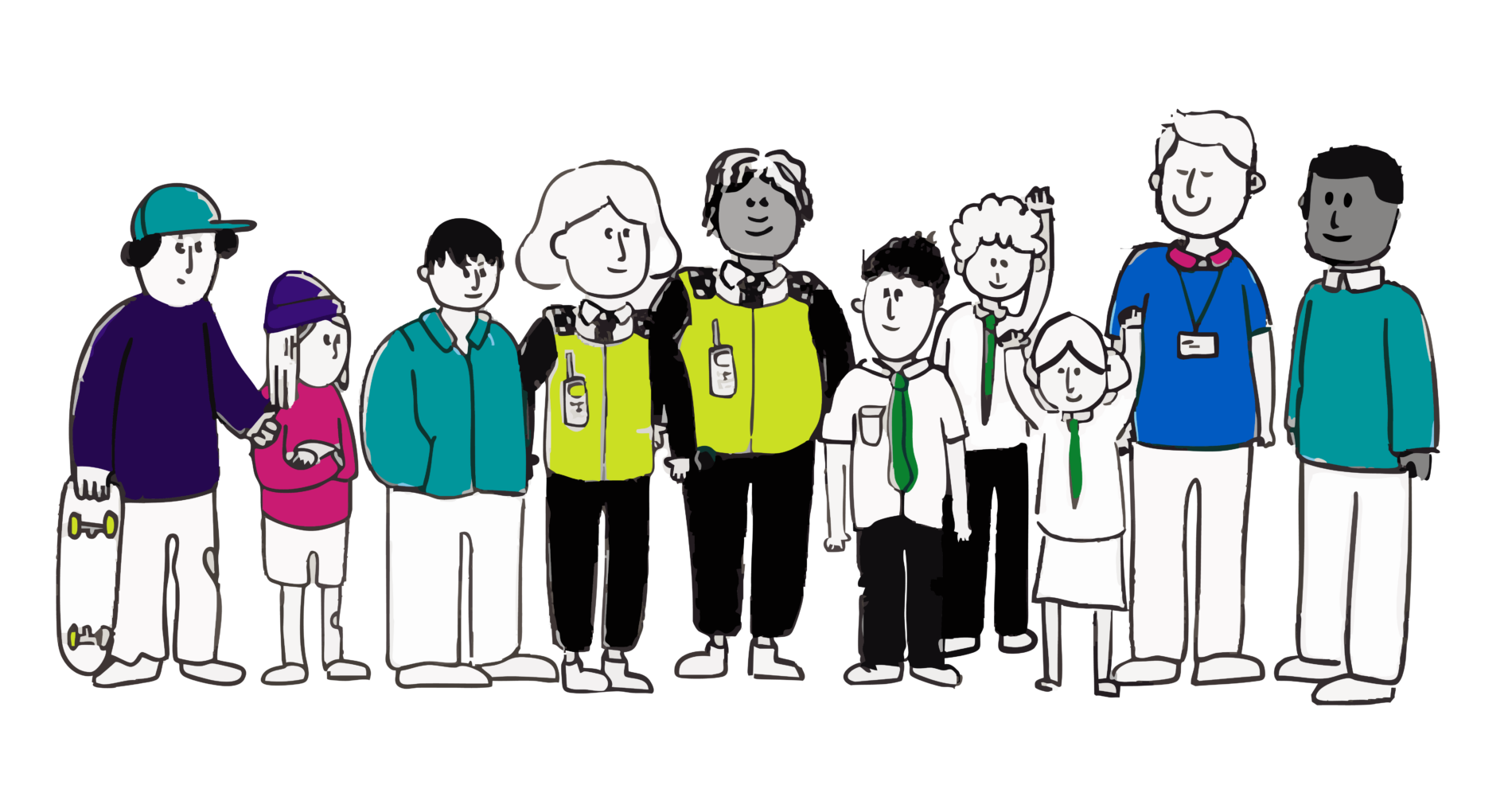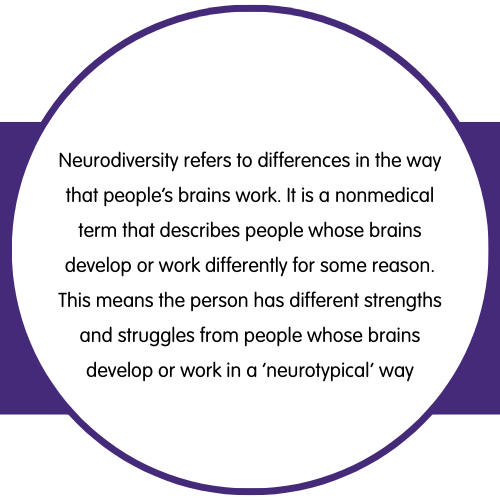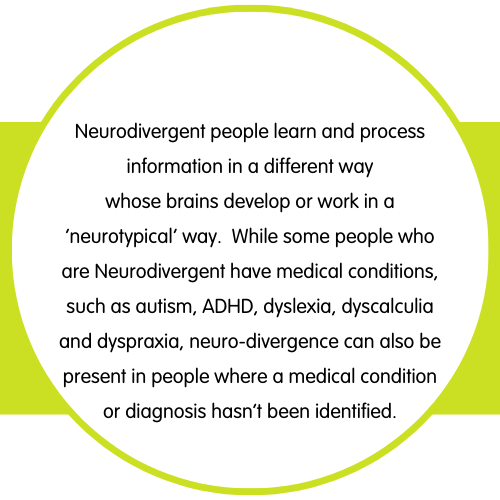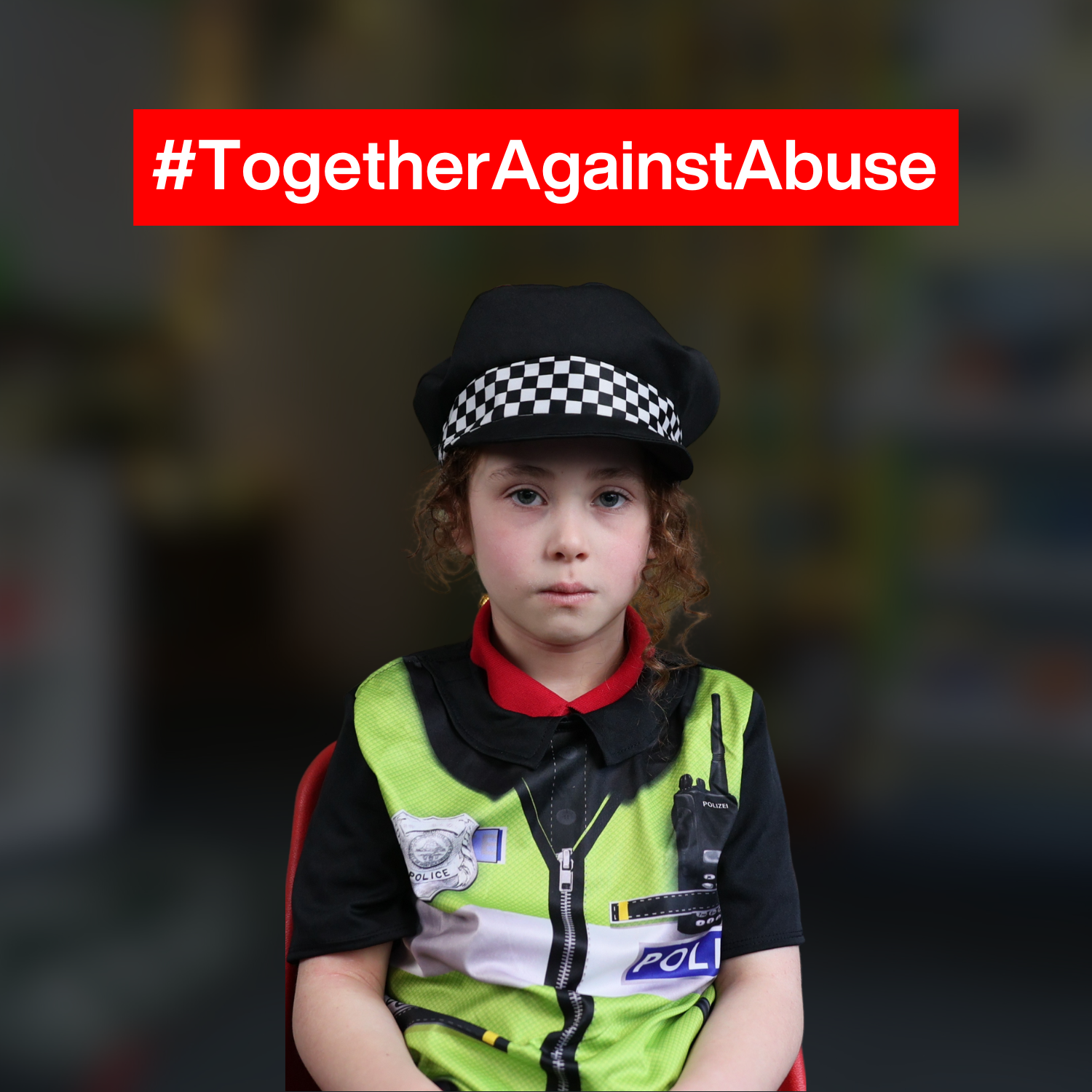“I wanted to be a gangster.” These are the words of *Anthony, a former young offender and victim of child criminal exploitation (CCE) here in Staffordshire. He agreed to speak …
Neuro-Verse
Neuro-Verse has been established to design a suite of resources to assist professionals and organisations to become neuro-aware.

Neuro-Verse
Staffordshire and Stoke-on-Trent Violence Reduction Alliance aims to work together the strengthen the visibility, early identification and partnership response to prevent violence and its associated harms. The VRA is a multi-agency partnership working to understand the causes and consequences of serious violence, supporting and enabling services that make a real difference to individuals and communities.
Midlands Partnership NHS Foundation Trust (MPFT) delivers specialist Children and Young People’s Health and Justice services, supporting children who come into contact with the criminal justice system. MPFT’s work is focused on understanding the “why behind the what” recognising that behaviours which bring young people into contact with the justice system are often driven by unmet health needs, adversity, and systemic disadvantage. Rather than viewing offending in isolation, they look deeper at the context: childhood trauma, neurodevelopmental differences, poor mental health, experiences of care, or substance misuse.
Within the criminal justice system, neurodivergent traits can be misunderstood as defiance, especially in environments that rely on compliance, fast communication, and emotional control. However, these behaviours are often manifestations of disability or stress, not intentional disobedience or disrespect. The risk factors for neurodivergence, crime and violence are complex and interlinked and children and young people with neurodiversity can experience serious violence in a range of ways.
It is estimated that around 30% of offenders have learning difficulties or learning disabilities, 16-19% have autism and 60-90% of young offenders have a speech or communication difficulty – these all interfere with their ability to cope within the criminal justice system.
The more knowledgeable we are about neuro-divergence and how to respond at the earliest opportunity, the more we can personalise our approach to enhance outcomes and be in a position to both support and advocate for individuals who experience life in a different way.
Implementing an informed offer for neuro-divergent individuals and families, requires an awareness of its existence, that we understand the role it plays, and adjust our approach and practice accordingly. If we embed this behaviour in meaningful ways the outcomes for those, we work with irrespective of neurodivergence, will be improved.
As such, Neuro-Verse Staffordshire and Stoke-on-Trent has been established by MPFT in partnership with the VRA, to design a suite of resources to assist professionals and organisations to become neuro-aware.
What is neurodiversity?

What is neurodivergence?


Meet Jack
This is the Jack we meet at the start of the animation. Jack is 13 years old and has always been full of energy. From the time he started primary school, teachers noticed that he found it difficult to sit still, follow long instructions, or wait his turn. In Year 2, while other children were able to quietly complete worksheets, Jack would be up out of his seat, asking questions, tapping his pencil, or chatting to whoever was nearby. He wasn’t trying to cause disruption he just couldn’t filter out all the thoughts racing through his mind or the noises in the classroom.
By the time he moved into secondary school, the gaps between Jack and his peers began to widen. The new environment, louder corridors, stricter rules, and changing classrooms intensified his challenges. Lessons that required sustained focus, like Maths or English, were especially tough. If he couldn’t grasp something quickly, frustration built up, sometimes spilling over into calling out, walking out of class, or snapping at teachers. These reactions often led to detentions, which only deepened Jack’s sense of failure. He started to believe he was “the naughty one,” even though he desperately wanted to do well.
At home, Jack’s mum describes him as “kind but restless.” He’s fiercely protective of his younger sister and loves playing football in the park, where he can release his energy and feel successful. But evenings can be difficult. Homework takes hours, often ending in tears and arguments. Jack’s emotions flip quickly he might be laughing one minute and slamming his bedroom door the next. His parents try to support him, but with limited time and their own stresses, they sometimes struggle to manage the intensity of his moods. His mum worries constantly about his low self-esteem, while his dad sometimes misreads Jack’s behaviour as laziness or disrespect.
Emotionally, Jack often feels like he’s “different.” He doesn’t always understand why he gets so wound up over things others seem to handle easily, like waiting in a queue or copying notes from the board. He feels embarrassed when teachers single him out, or when classmates laugh at him for blurting out answers. His impulsivity means he sometimes says things without thinking, which has led to fallouts with friends. These experiences leave him oscillating between anger and shame, carrying the sense that he’s “too much” for the adults around him.
Despite these challenges, Jack’s strengths are undeniable. He’s creative, curious, and quick to spot patterns or come up with new ideas. When he feels safe and supported, he can hyper-focus losing himself in drawing, coding on the computer, or watching documentaries. He wants to succeed, but too often the systems around him amplify his struggles rather than his abilities.
This is the Jack we meet at the start of the animation: a bright, capable young person, weighed down by misunderstanding and exclusion, but with enormous potential if only the right support is in place.
Animation
The animation introduces Jack and demonstrates his neuro-divergent experiences in school and the wider community. It highlights how professionals might see the neurodivergent traits in a negative manner, what can happen if support is not provided at an early opportunity and the potential escalation of behaviour and poor outcomes for those experiencing neurodivergence.
The animation provides the opportunity to witness how vulnerabilities including neurodivergence can lead to risky encounters, and how professionals could adapt and implement simple strategies to assist individuals to feel safe and succeed.

Help and Support available to you
Visit our Support page for further information and advice on where to go for support.
Campaigns
We are taking a partnership and inclusion approach to bringing about positive changes in communities throughout Staffordshire & Stoke-on-Trent. These projects are created or selected based on understanding and needs of local communities, brought by those who are living and working within them.
Latest News
From today, (Friday 1 August), ninja swords across England and Wales have been banned and the law around ownership change. Under the Criminal Justice Act 1988 (Offensive Weapons) (Amendment, Surrender …
Over 200 children at risk of, or victims of, Child Criminal Exploitation were supported last year by the Catch22 service, commissioned by the Staffordshire Commissioner’s Office. A further 169 parents …
The Staffordshire and Stoke-on-Trent Violence Reduction Alliance (VRA) has launched a new campaign to tackle violence against frontline workers across the City and County. Developed in partnership with Staffordshire Police, …


